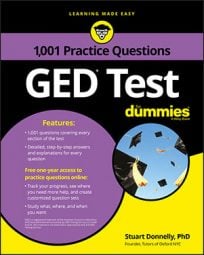Practice Questions
- Which of the following is a way to combat global warming?
A. Ban gardeners and farmers from using greenhouses because carbon dioxide is a greenhouse gas. B. Use renewable energy sources such as wind or solar power. C. Cut down more trees in the rainforests to stop them from producing carbon dioxide during photosynthesis. D. Burn more fossil fuels to get rid of these carbon-containing compounds.
- The maximum number of individuals of a particular species that the ecosystem can handle is known as
A. predation B. natural selection C. the carrying capacity D. biodiversity
Answers and Explanations
- The correct answer is B.
One of the causes of global warming is the increased emission of carbon dioxide into the atmosphere. Renewable fuel sources such as solar or wind power don't produce carbon dioxide, so this would reduce the amount of carbon dioxide released into the atmosphere, making Choice (B) correct.
Choice (A) is hilarious but incorrect. Greenhouses have nothing to do with releasing "greenhouse gases." Trees actually remove carbon dioxide from the air during photosynthesis, so cutting down trees would make the problem worse, not better, so Choice (C) is wrong. Burning additional fossil fuels would increase the amount of carbon dioxide released, so Choice (D) is wrong.
- The correct answer is C.
The maximum number of individuals of a particular species that the ecosystem can handle is known as the carrying capacity, so Choice (C) is correct.
Predation refers to the relationship between hunters and prey, so Choice (A) is incorrect. Natural selection is the way in which species adapt and evolve in order to survive and pass on their genes to the next generation, which produces greater biodiversity (variations of organisms), but this doesn't answer the question, so you can reject Choices (B) and (C).

